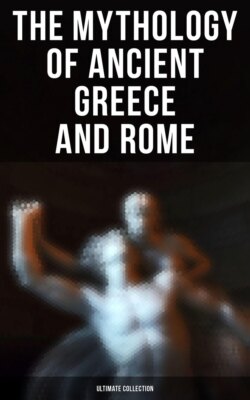Читать книгу The Mythology of Ancient Greece and Rome - Ultimate Collection - Homer - Страница 63
На сайте Литреса книга снята с продажи.
EXPLANATION.
ОглавлениеIf Ovid is not here committing an anachronism, and making Jupiter, before the deluge, relate the story of a historical personage, who existed long after it, the origin of the story of Lycaon must be sought in the antediluvian narrative. It is just possible that the guilty Cain may have been the original of Lycaon. The names are not very dissimilar: they are each mentioned as the first murderer; and the fact, that Cain murdered Abel at the moment when he was offering sacrifice to the Almighty, may have given rise to the tradition that Lycaon had set human flesh before the king of heaven. The Scripture, too, tells us, that Cain was personally called to account by the Almighty for his deed of blood.
The punishment here inflicted on Lycaon was not very dissimilar to that with which Cain was visited. Cain was sentenced to be a fugitive and a wanderer on the face of the earth; and such is essentially the character of the wolf, shunned by both men and animals. Of course, there are many points to which it is not possible to extend the parallel. Some of the ancient writers tell us, that there were two Lycaons, the first of whom was the son of Phoroneus, who reigned in Arcadia about the time of the patriarch Jacob; and the second, who succeeded him, polluted the festivals of the Gods by the sacrifice of the human race; for, having erected an altar to Jupiter, at the city of Lycosura, he slew human victims on it, whence arose the story related by the Poet. This solution is given by Pausanias, in his Arcadica. We are also told by that historian, and by Suidas, that Lycaon was, notwithstanding, a virtuous prince, the benefactor of his people, and the promoter of improvement.
